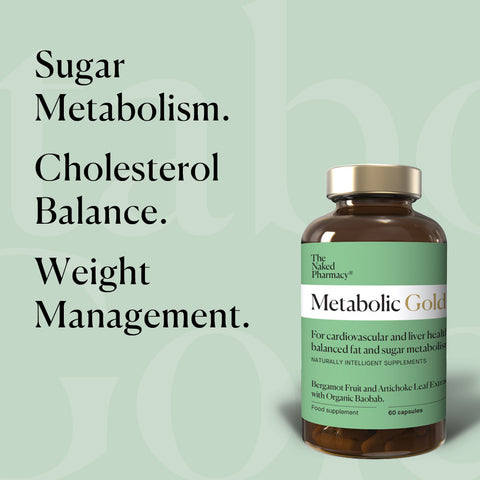An increase in fat around the waistline during our 40's is common even if there has been no change in your diet or lifestyle and can lead you to feeling frustrated that your previously successful weight-loss tactics are no longer effective.
However the good news is that our bodies undergo changes in hormone levels, muscle mass, etc. that require us to rethink our relationship with our diet, lifestyle, exercise and levels of stress.
Why does this happen in women?
Declining oestrogen levels require the body to look elsewhere for oestrogen – namely fat cells, which produce a weak form of oestrogen.
The body tries to create a reserve of oestrogen in fat cells – and this reserve is mainly around the middle.
Oestrogen and Insulin
Declining levels of oestrogen also slow down metabolic rate and insulin resistance may occur.
Menopausal women respond differently to glucose (sugar) and are at greater risk of becoming insulin resistant – insulin is the hormone that helps the body use glucose for energy.
This can then cause weight gain and increases the risk of type 2 diabetes.
Low oestrogen levels have also been shown to be associated with low vitamin D levels, which can increase fat storage.
As a woman transitions through menopause, the adrenal glands take over from the ovaries to produce a little oestrogen – however, as the adrenals also produce stress hormones – if a woman is dealing with a lot of stress in her life, the adrenals will shift to “survival mode” and away from producing oestrogen.
This encourages the body to store fat, especially around the middle and puts the brakes on any weight loss tactics.
Why does this happen in men?
Testosterone plays an important role in maintaining a healthy weight by helping to build muscle, speed up metabolism and maintain insulin sensitivity.
However, as men hit their 40s and testosterone levels start to decline, this encourages the body to store fat, especially around the middle and is associated with a higher risk of diabetes and heart disease.
Human Growth Hormone is another crucial hormone in men, which enters rapid decline as men enter their 40s causing a reduction in muscle mass.
Muscle tissue is the largest consumer of glucose (sugar) in the body, so the loss of muscle mass results in less glucose being used up and this excess is then converted into body fat and stored around the middle.
The reduction in muscle mass also means that the body does not process carbohydrates efficiently, so eating too many sugary and starchy foods such as biscuits, cakes, sweets, pasta, potatoes, crisps etc triggers weight gain which is harder to shift.
Of course both men and women have these hormones in greater or lesser quantities and these levels also fluctuate based on gender and ethnicity.
The impact of poor sleep
High stress levels and disrupted sleep can add to the weight gain and insulin resistance.
Research also shows that lack of sleep, will increase appetite and hunger hormones alter, making us more hungry and prone to cravings.
Loss of muscle mass
Muscle mass diminishes with age, whilst fat storage increases – losing muscle mass slows your metabolism, making it more challenging to maintain a healthy weight.
Low testosterone levels and poor thyroid function can also slow down metabolism, causing fatigue and making it harder to shift fat.
Here are our tips to help you tame unwanted weight gain:
-
Blood-sugar control is key (check out our book recommendations below to help you). Aim to reduce the amount of carbs you consume, especially rice, pasta, bread, cakes, alcohol and sugary foods. These peak sugar and encourage a sugar roller coaster.
-
Include protein with every meal and essential fatty acids (omega 3s).
-
Fasting overnight (12-14 hours) be aware of underlying health conditions that may mean fasting is not a safe option for you.
-
Regular and consistent exercise, especially resistance training to build muscle mass, resistance bands for example are portable and easy to use. Regular exercise snacks are better than weekly exercise bingeing!
-
Be aware of your stress levels as this will effect how your body metabolises food and nutrients, daily de-stressing activities could be a 10 minute walk outside, 5 minutes of breathing, journalling, regular 2 minute cold showers.
Can Supplements help?
Saffrosun Calm has been proven to promote restful sleep, balance the stress response and enhance energy levels.

Saffrosun Energy - includes all the benefits of Saffron if your thyroid is sluggish, or are suffering from brain fog with added iodine, vitamin D3 and will provide you with balanced energy.

Metabolic Gold – can help in your weight loss journey by binding to bad fats in the gut and prevent them being used in the body. Studies show that it can substantially reduce belly fat when taken for 3 months.

Books you may wish to read to support your weight loss journey:
MenuPause by Dr Anna Cabeca – gives 5 unique menu plans to break through menopause weight loss resistance
Glucose Revolution by Jessie Inchauspe – a great reference book on blood sugar control (check out @glucosegoddess on Instagram)









